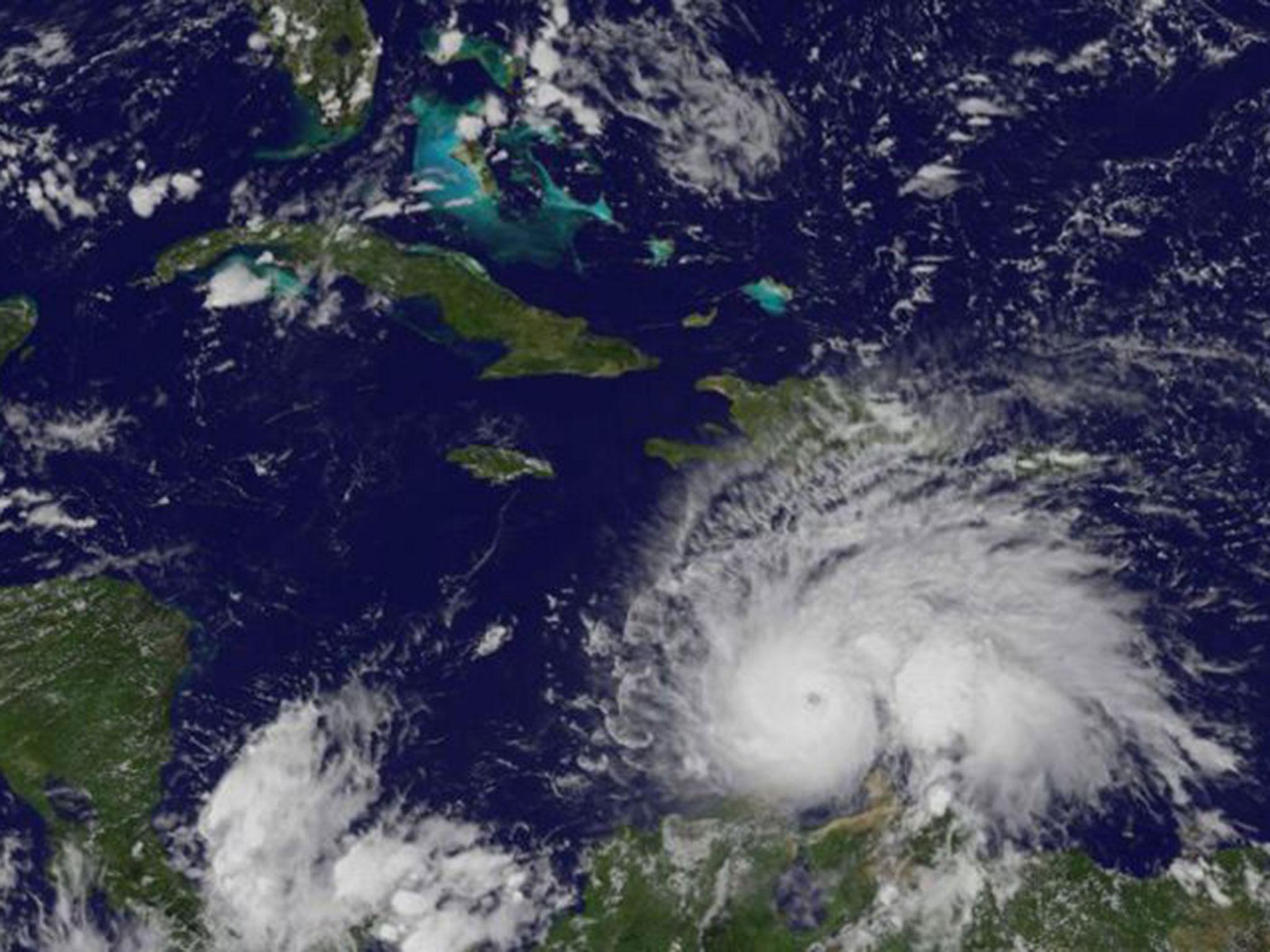Hurricane Matthew: Haiti and Jamaica braced for devastating 155mph winds
'Hurricane Matthew has shifted a bit eastward – good news for Jamaica, bad news for Haiti'

Your support helps us to tell the story
From reproductive rights to climate change to Big Tech, The Independent is on the ground when the story is developing. Whether it's investigating the financials of Elon Musk's pro-Trump PAC or producing our latest documentary, 'The A Word', which shines a light on the American women fighting for reproductive rights, we know how important it is to parse out the facts from the messaging.
At such a critical moment in US history, we need reporters on the ground. Your donation allows us to keep sending journalists to speak to both sides of the story.
The Independent is trusted by Americans across the entire political spectrum. And unlike many other quality news outlets, we choose not to lock Americans out of our reporting and analysis with paywalls. We believe quality journalism should be available to everyone, paid for by those who can afford it.
Your support makes all the difference.Jamaica, Haiti and Cuba are bracing themselves for the arrival of one of the most powerful hurricanes to hit the Caribbean.
Hurricane Matthew is a category four storm – downgraded from category five after weakening slightly today, but still boasting winds of 155mph.
The storm, the strongest in the region since Hurricane Felix in 2007, was expected to devastate the southern coast of Jamaica by Monday, with other islands including Cuba and the Bahamas in danger. Now, after a slight eastwards alteration in Matthew's forecast path, meteorologists say that Haiti could be in line for the worst damage.
It's bad news for the poverty-stricken nation, still recovering from the catastrophic earthquake of 2010. In 2008, the island's worst year for hurricanes, storms Fay, Gustav, Hanna and Ike all hit in a row. More than 700 people died and 300 were reported missing, with 22,000 homes flattened.
Yves Domercant, the head of Haiti's public hospital in Les Cayes in the south, said: “We will prepare with drinking water for the patients, with medication, with generators for electricity and vehicles to go look for people at their homes."
In Jamaica, locals have been stocking up on drinking water and supplies in preparation for storm surges, flooding and landslides. Fears remain that Matthew could make landfall on the southern coast hitting Kingston, the country's capital, and Jamaica's only oil refinery. There have also been warnings of giant sea swells. Local disaster coordinators, the police and military have been put on standby and shelters are being opened throughout the island.
“The government is on high alert,” said Robert Morgan, director of communications at the prime minister's office. “We hope that the hurricane does not hit us, but if it does, we are trying to ensure that we are in the best possible place.”
Before the storm shifted slightly, meteorologist Eric Holthaus, said: “Should Matthew stay on its current projected path, it would be a near-worst-case scenario for Jamaica. No hurricane as strong as Matthew has ever made landfall in Jamaica in recorded history.” After forecasters predicted an easterly move, he tweeted: 'Hurricane Matthew has shifted a bit eastward – good news for Jamaica, bad news for Haiti'.
The storm has drawn comparisons to 1988’s Hurricane Gilbert, which killed 318 people across the Caribbean and Gulf of Mexico, causing widespread destruction.
Dennis Feltgen, a meteorologist and spokesman for the hurricane centre in Miami, told AP: "Hurricane Matthew could rival or possibly exceed Gilbert if the core of the strongest winds does actually move over Jamaica. There is no certainty of that at this point."
Matthew is also the closest a category five hurricane has ever come to South America, Mr Holthaus added.
The storm has already killed one person in St Vincent and the Grenadines earlier in the week, when a 16-year-old boy was crushed by a boulder as he tried to clear a blocked drain.
Colombia has also issued tropical storm warnings for its Caribbean coast after experiencing extremely high tides, storm surge and heavy rain.
Local TV broadcast images of cars and tree trunks surging though flooded streets in coastal areas and reported that at least one person died because of flooding.
The strongest winds of Matthew are double those of Hurricane Earl, which hit Belize in August at around 80mph, causing significant damage.
Read more
In Cuba, residents of the eastern coastal city of Santiago de Cuba said they were tracking the news closely, although skies were still blue.
"We don't know yet exactly where it will go, so we're still waiting to see," said Marieta Gomez, owner of Hostal Marieta, who was following the storm closely on TV and radio. "We Cubans are well prepared."
Cuba has a strong track record of keeping its citizens out of harm's way when storms strike.
Reuters contributed to this report.
Join our commenting forum
Join thought-provoking conversations, follow other Independent readers and see their replies
Comments